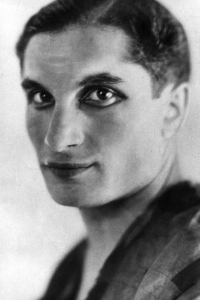Podcast: Play in new window | Download () | Embed
Subscribe: Spotify | TuneIn | RSS | More
Remember the summer of 2020? The good old days of lockdown? That was the first summer that I was producing Countermelody, and during that time I tried to inject a little levity into the podcast by doing a long series on crossover. One such episode was devoted to a century of tenors singing crossover, reaching back further than a century from Hermann Jadlowker and Caruso himself and extending to the present day. There was such a wealth of gorgeous material which led to an additional bonus episode on such “Rogue Tenors,” which includes (among the German-speaking singers) Helge Rosvaenge, Fritz Wunderlich, Peter Schreier, Richard Tauber, Marcel Wittrisch, Jonas Kaufmann, Anton Dermota, Walther Ludwig, Herbert Ernst Groh, Joseph Schmidt, Jan Kiepura, and Julius Patzak; others include Stuart Burrows, Roland Hayes, Richard Lewis, Lawrence Brownlee, Jan Peerce, José Carreras, Kenneth McKellar, Noah Stewart, Tino Rossi, Luigi Alva, Giuseppe di Stefano, and Jerry Hadley in a wide range of repertoire and styles ranging from Neapolitan songs Kurt Weill; from folk songs to Victorian parlor songs; from operettas and Tonfilm Schlager to jazz and rock. It’s a rollicking good ride; hold on tight and enjoy!
Countermelody is a podcast devoted to the glory and the power of the human voice raised in song. Singer and vocal aficionado Daniel Gundlach explores great singers of the past and present focusing in particular on those who are less well-remembered today than they should be. Daniel’s lifetime in music as a professional countertenor, pianist, vocal coach, voice teacher, and journalist yields an exciting array of anecdotes, impressions, and “inside stories.” At Countermelody’s core is the celebration of great singers of all stripes, their instruments, and the connection they make to the words they sing. By clicking on the following link (https://linktr.ee/CountermelodyPodcast) you can find the dedicated Countermelody website which contains additional content including artist photos and episode setlists. The link will also take you to Countermelody’s Patreon page, where you can pledge your monthly support at whatever level you can afford.

